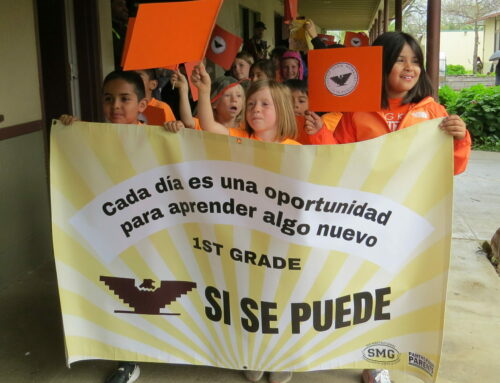Published in the March 2-15, 2016 issue of Morgan Hill Life
By Jeff Chambers
Most of us have heard about the benefits of learning music as a child. Many studies and empirical data prove that this is true.
Learning an instrument at an early age produces long lasting changes in motor abilities and brain structure. The earlier a child starts instrumental training, the stronger the connection between the right and left hemispheres of the brain. These changes last into adulthood and are proven to affect the ability to listen and communicate as an adult. Studies also show that older adults who took music lessons at a young age can process the sounds of speech faster than those who did not, even if they haven’t picked up an instrument in 40 years.
When playing music in a group, many things happen at once. You must watch your music for not only the notes to play but for dynamics and articulations, you watch the director for changes in tempo, listen to pitch and adjust as necessary. In those actions you are developing motor skills, auditory skills and team work skills as you all work together. In essence, the brain is learning the art of multitasking.
Students of music learn craftsmanship as they study how details are put together painstakingly and what constitutes good, as opposed to mediocre, work. These standards, when applied to a student’s own work, demand a new level of excellence and require students to stretch their inner resources. Music can help stave off medical conditions such as dementia and Alzheimer’s disease.
As musicians, we are given a very unique opportunity to learn a universal language, a way to communicate ideas and emotions. Every culture in the world relies on music to celebrate and mark important events. Music has the ability to trigger memories and emotions instantly. A study of the arts provides children with an internal glimpse of other cultures and teaches them to be empathetic towards the people of these cultures. This development of compassion and empathy, as opposed to development of greed and a “me first” attitude, provides a bridge across cultural chasms that leads to respect of other races at an early age.
The good news is that although children can benefit the most from music education, adults also can benefit in many ways. Adults who have the discipline and focus to make themselves practice are much better equipped to tackle complicated, abstract concepts. And if you have decided to take up an instrument as an adult, it means you actually want to learn it – no one is making you.
Now is a excellent time to start your children or yourself, and if you once played an instrument and put it down, it is never too late to pick it up again.
You can hear some talented musicians and some incredibly gifted students play with South Valley Symphony at 7:30 p.m. Saturday March 5 at Gavilan Community College’s campus in Gilroy.
Jeff Chambers is a musician in the South Valley Symphony and also teaches music on a private basis. He can be reached by emailing him at [email protected]. He wrote this column for Morgan Hill Life.







